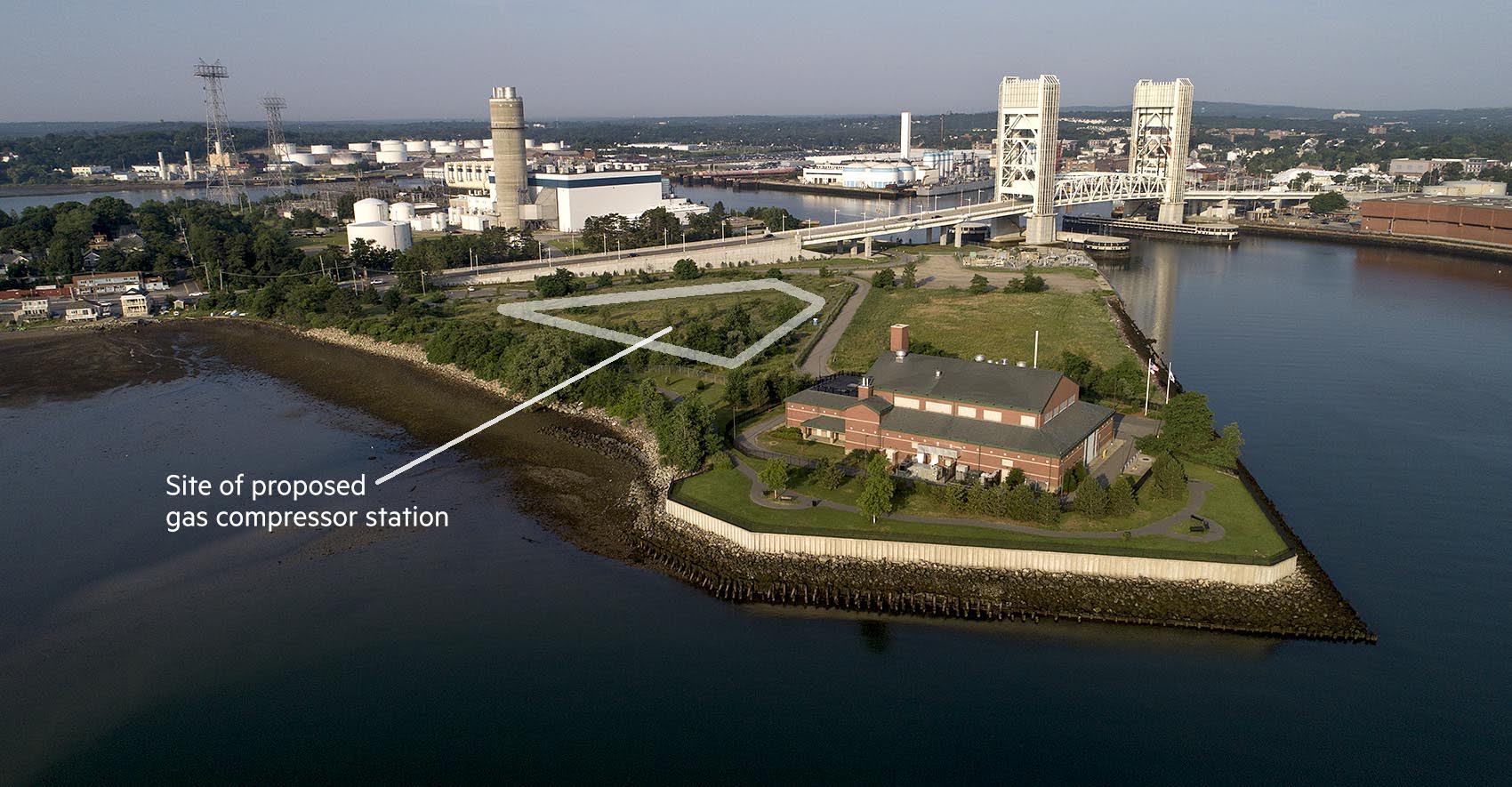Advertisement
Shifting Demand Fuels Weymouth Compressor Debate

The energy company Enbridge has a plan, and it's called the Atlantic Bridge Project. Approved by federal regulators in 2017, the $452 million project would pipe more natural gas north from New Jersey into New England and Canada. To make the project work, Enbridge says it needs to build a 7,700-horsepower compressor station in Weymouth to push gas up the pipeline to customers farther north.
But two of the customers that signed on to the Atlantic Bridge Project — New Brunswick-based New England NG Supply Limited (NENG) and Exelon Corporation — have backed away from their contracts with Enbridge and agreed to sell at least part of their capacity to National Grid.
And National Grid — along with Eversource and Norwich Public Utilities in Connecticut — says it does not need the proposed Weymouth compressor to meet customer demand for gas.
That leaves three out-of-state utilities that still need the compressor station to push gas northward: Maine Natural Gas, New Hampshire-based Unitil and Summit Natural Gas of Maine, which plans to acquire the remaining capacity on Exelon's contract, according to federal documents.
Two other utilities — Canada-based Heritage and Irving Oil-- did not respond to requests for comment.
This shift in demand for contracts has left Enbridge with fewer northern customers for its Atlantic Bridge Project. And opponents of the project are questioning again why Enbridge is pushing forward with plans for the Weymouth compressor station.
"Federal regulators are supposed to gauge whether projects will fill a public need when approving energy facilities," said Sen. Ed Markey, a longtime opponent of the compressor station. "It’s clear that the Weymouth compressor is unneeded, unwanted and unwelcome in Massachusetts, and should be rejected.”
A spokesperson for Calgary-based Enbridge said in a statement that "the proposed Weymouth compressor station is required to help us serve the needs of the Atlantic Bridge Project customers located generally north of Weymouth, including local gas utilities in Maine and Atlantic Canada."
By 2017, Enbridge had secured agreements with eight utilities who planned to use the Atlantic Bridge Project pipeline, and federal regulators issued a certificate of "public necessity and convenience" allowing the project to move forward. Tamara Young-Allen, a spokesperson for the Federal Energy Regulatory Commission (FERC), said that the agency has no plans to review the certificate, even though some utilities — often called "shippers" -- had backed out of their agreements.
"We routinely receive requests from shippers seeking to assign contracts to other companies," Young-Allen said. "So the Atlantic Bridge shippers’ requests are not unique."
NENG announced in September that it was withdrawing from the project. In federal documents the company noted that it had pursued other gas supply options because the Atlantic Bridge Project had been delayed, and it was unclear when Enbridge would open the pipeline for service. In October, National Grid applied to buy capacity from both NENG and Exelon.
Meanwhile, the state's Office of Coastal Zone Management is weighing whether to issue a federal consistency determination. This is the fourth and final state permit needed to move the project forward, and the agency is expected to make a decision by Nov. 12. If approved, Enbridge can ask federal regulators for a "notice to proceed," which will allow them to begin construction. The project is at least two years behind schedule, and Enbridge now has until Jan. 25, 2021, to put the facilities into service, according to FERC documents.
Many elected officials in the state oppose the project, including the mayors of Weymouth, Quincy and Braintree; Rep. Stephen Lynch, whose district includes Weymouth; U.S. Sens. Elizabeth Warren and Markey; and Attorney General Maura Healey. Opponents say that the proposed site for the compressor station is too densely populated and too close to other critical infrastructure.
"We have said all along it is a dangerous and unacceptable siting for this compressor station," said Alice Arena, president of the group Fore River Residents Against the Compressor Station. "So this is an opportunity for Gov. [Charlie] Baker to take a very close look and say, well, 'Hey, if we don't need the gas, why are we doing this?' This has become our question."
In the past, Baker has recognized public concerns but hasn't taken a definitive stance on the project.
Asked for comment, Katie Gronendyke, a spokesperson for the state Department of Energy and Environmental Affairs, said in a statement FERC has primary jurisdiction over interstate pipelines, but the department would "will continue to prioritize the Commonwealth’s public safety and the proper environmental protections in reviewing all proposed projects."
FERC spokesperson Young-Allen wouldn't speculate on what the federal agency would do if the state failed to issue the final permit.
"I don’t think that has ever occurred," she said.

